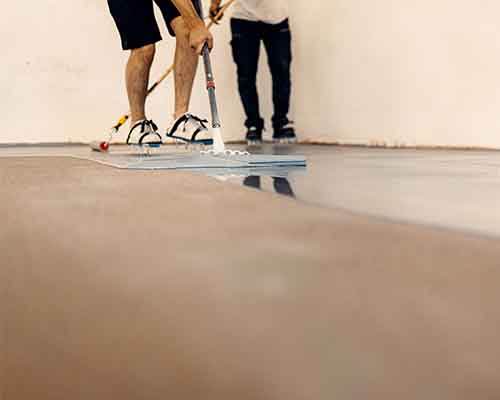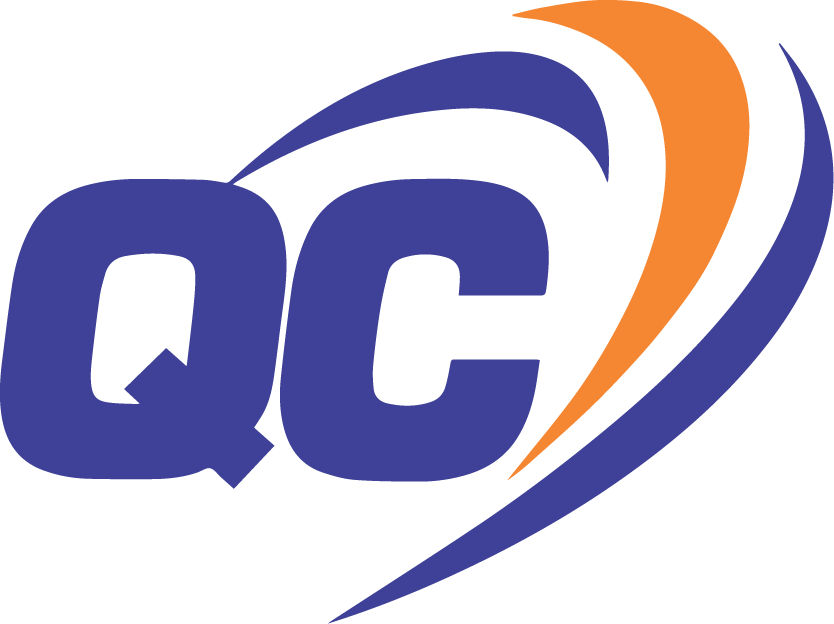What is Epoxy Flooring: The Types, Benefits, and Choosing the Ideal Option

What is Epoxy flooring?
Epoxy flooring has become increasingly popular in recent years, known for its durability, aesthetic appeal, and versatility. This type of flooring is created by combining resin and hardener, resulting in a rigid plastic material that bonds exceptionally well to most base layers, providing a robust and long-lasting surface. Here’s a closer look at what epoxy flooring entails, the different types available, the benefits it offers, and how to choose the ideal option for your needs.
Epoxy flooring is a coating system typically applied over concrete floors to provide a high-performance, smooth, and durable surface. It is commonly used in commercial and industrial settings but has also found its way into residential applications due to its impressive properties. The application process involves preparing the concrete surface, applying the epoxy resin mixture, and allowing it to cure. The result is a surface that can withstand heavy foot traffic, chemical spills, and other forms of wear and tear.
Types of Epoxy Flooring
Epoxy flooring comes in various types, each designed to meet specific needs and conditions. Here’s an overview of the most common types of epoxy flooring:
1. Self-Leveling Epoxy Floors:
Self-leveling epoxy floors are designed for commercial, industrial, and residential spaces, providing a smooth, seamless surface over new or damaged concrete. This type of epoxy can cover cracks and imperfections, resulting in a polished and uniform appearance. It’s commonly used in warehouses, offices, kitchens, and garages, offering durability and an attractive finish.
2. Epoxy Mortar Floors:
Known as the strongest epoxy flooring option, epoxy mortar floors combine 100% solid epoxies with graded or quartz sand. These floors are highly resistant to heavy impact, chemicals, and wear, making them ideal for industrial environments, manufacturing plants, and repair facilities. They can also be used to repair cracks before applying other types of epoxy flooring.
3. Epoxy Flake Floors:
Epoxy flake floors incorporate colored flakes into the epoxy mixture, creating a decorative and slip-resistant surface. Available in various colors, sizes, and blends, they are perfect for locker rooms, sports venues, and showrooms. The flakes not only enhance the appearance but also provide texture, reducing the risk of slips and falls.
4. Quartz-Filled Epoxy Floors:
These floors combine high-performance epoxy resin with colored quartz grains, offering durability and chemical resistance. Quartz-filled epoxy floors are ideal for high-traffic areas such as restrooms, lobbies, schools, and cafeterias, providing a decorative and safe surface.
5. Anti-Static Epoxy Floors:
Designed to prevent the buildup of static electricity, anti-static epoxy floors are suitable for environments where static-sensitive equipment is used, such as electronics manufacturing plants, laboratories, and hospitals. They help protect sensitive equipment and reduce the risk of static-related accidents.
6. Epoxy Terrazzo Floors:
Epoxy terrazzo floors are a decorative type of flooring that incorporates pieces of marble, granite, glass, or other aggregates into the epoxy mixture. They create a highly durable and aesthetically pleasing surface that can be customized with various colors and designs, often used in commercial buildings, airports, and museums.
7. Vapor Barrier Epoxy Floors:
Vapor barrier epoxy floors prevent moisture from penetrating the concrete substrate, essential in areas prone to high humidity or moisture like basements, garages, and warehouses. They help protect the integrity of the concrete and reduce the risk of mold growth.
8. Metallic Epoxy Floors:
Known for their stunning and unique appearance, metallic epoxy floors use metallic pigments mixed with epoxy resin to create a glossy, reflective surface with a three-dimensional look. The pigments can be manipulated to create various effects, making each floor a unique masterpiece, ideal for showrooms, restaurants, and residential spaces where a striking visual impact is desired.
Benefits of Epoxy Flooring
Epoxy flooring offers numerous benefits, making it a popular choice for both commercial and residential applications. Here are some key advantages:
1. Durability:
Epoxy floors are renowned for their exceptional durability, making them the perfect choice for high-traffic areas such as industrial settings, warehouses, and garages. They can withstand heavy impacts, abrasions, and constant wear and tear, ensuring a long-lasting and low-maintenance flooring solution.
2. Easy Maintenance:
The seamless and non-porous nature of epoxy flooring makes it easy to clean and maintain. Dirt, dust, and debris can be easily swept away, and spills can be quickly wiped up without staining the surface. This low maintenance requirement saves time and effort in upkeep.
3. Chemical Resistance:
Epoxy flooring is highly resistant to chemicals, making it a suitable choice for environments where spills of harsh substances are common, such as laboratories, pharmaceutical facilities, and manufacturing plants. This resistance helps maintain the floor’s integrity and appearance over time.
4. Aesthetic Appeal:
Available in a variety of colors, finishes, and decorative options, epoxy flooring can be customized to match the aesthetic of any space. From high-gloss finishes to decorative flakes and metallic pigments, epoxy floors can enhance the visual appeal of commercial and residential areas.
5. Quick Installation:
One of the significant advantages of epoxy flooring is its rapid installation process. With a faster installation process than many other flooring options, epoxy flooring helps minimize downtime for businesses and homeowners, getting you back to work or daily activities sooner. The epoxy coating cures and sets rapidly, allowing you to use the space again quickly, making it an ideal choice for those who need to get back to work or daily activities quickly.
6. Environmental Benefits:
Epoxy flooring systems can be environmentally friendly, as they often require fewer materials and resources than other flooring options. Additionally, their long lifespan means less waste generated from frequent replacements.
7. Moisture and Stain Resistance:
Epoxy floors are impervious to moisture, which helps prevent damage from water spills or leaks. This moisture resistance also makes epoxy flooring an excellent choice for basements and other areas prone to dampness. Furthermore, the non-porous surface resists stains, keeping the floor looking clean and new for longer.
Choosing the Ideal Epoxy Flooring
Selecting the ideal epoxy flooring involves understanding the different types available and how they suit your specific needs. Here are the three main types of epoxy floor coatings:
1. Two-Part Epoxy Floor Coating with 100 Percent Solids:
This type of epoxy coating is composed of two parts: resin and hardener, mixed together to create a highly durable and robust floor surface. Because it contains 100 percent solids, it results in a thicker, harder coating that offers excellent durability and resistance to wear, chemicals, and impacts. This makes it ideal for industrial environments, warehouses, and garages where heavy machinery and high traffic are common. The thicker application also helps in covering minor imperfections in the concrete.
2. Two-Part Water-Based Epoxy Floor Coating:
Water-based epoxy coatings also consist of two parts but are diluted with water. They are easier to apply and more user-friendly than 100 percent solids epoxy. While they are not as thick or durable as the 100 percent solids variety, they still offer good durability, chemical resistance, and a decent lifespan. This type of epoxy is suitable for residential spaces, commercial settings, and areas with moderate traffic. It’s also more environmentally friendly and has a lower odor during application, making it a preferable choice for indoor applications.
3. One-Part Floor Coating:
One-part epoxy floor coatings come pre-mixed and ready to use, eliminating the need for mixing resin and hardener. These coatings are generally less durable than two-part systems but are much easier to apply, making them a good choice for DIY projects. They offer reasonable protection and aesthetics for light-duty applications, such as basements, laundry rooms, and other residential spaces. While they do not provide the same level of durability and chemical resistance as two-part systems, they are convenient and quick to apply
Why Choose QaswaChemicals for Best Epoxy Flooring Service
When it comes to epoxy flooring, QaswaChemicals stands out as a top choice for exceptional service. With a team of experts and a commitment to quality, QaswaChemicals delivers top-notch epoxy flooring solutions that meet the unique needs of each client. From industrial settings to residential spaces, QaswaChemicals’ epoxy flooring services guarantee durability, aesthetic appeal, and long-term performance. By choosing QaswaChemicals, you can trust that your epoxy flooring project will be completed efficiently, effectively, and to the highest standards.


